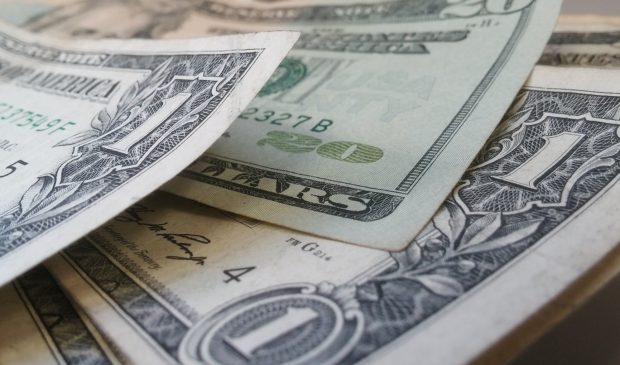About the Author
Chad Swiatecki is a 20-year journalist who relocated to Austin from his home state of Michigan in 2008. He most enjoys covering the intersection of arts, business and local/state politics. He has written for Rolling Stone, Spin, New York Daily News, Texas Monthly, Austin American-Statesman and many other regional and national outlets.
Newsletter Signup
The Austin Monitor thanks its sponsors. Become one.
Most Popular Stories
- Police, state ready to intervene on after-hours bars operating downtown
- Austin Energy hopes new solar standard offer can scale up sorely needed local generation
- San Antonio, Travis County and Mexico officials urge Legislature to fund passenger rail next session
- Auditor finds PARD employee improperly used rec center for birthday party
- Delayed CapMetro Rapid routes to launch next year with slower service and diesel buses
-
Discover News By District
Popular Whispers

Prop H gets support from community leaders pushing ‘democracy dollars’
Wednesday, April 14, 2021 by Chad Swiatecki
Leaders from a variety of community and political advocacy groups voiced their support Tuesday for Proposition H, the ballot proposal popularly known as “democracy dollars” that is intended to bring public financing into local elections.
Members of Austinites for Progressive Reform, which helped in the initial push to create the ballot proposal, Common Cause Texas and Go Austin/Vamos Austin participated in an online press conference that addressed some of the criticism the proposal has received from opponents who say it doesn’t go far enough to open access to the local political process.
The program is inspired by – if not a direct model of – an existing democracy dollars program in Seattle. As proposed, registered voters (though not necessarily all residents) would receive $25 vouchers to direct toward the City Council or mayoral candidates of their choice.
The intent of that model is to reduce the influence of large donors on local campaigns, making it more possible for grassroots candidates to build a feasible campaign with money generated from the vouchers.
Council Member Greg Casar said more diversity is needed in deciding local elections, with policies concerning the response to the Covid-19 pandemic or the February winter storm blackouts playing an important role in residents’ everyday lives.
“It’s critical that we put people over profit, the common good above special interests, and that we need more power for communities of color in our local democracy, not less,” he said.
“Prop H will allow grassroots candidates with real community support to go head to head against special-interest money in elections. That is so important because we know that in a competitive election it requires dollars for you to be able to compete, be able to get your message out and pay a fair wage to your staff,” Casar said.
Casar has gone on record with plans to introduce ordinance language that would expand democracy dollars to all residents, including those who are unable to vote because of immigration status or past criminal history. While stressing that only 1 percent of city residents donate to local campaigns, he said the program will increase access for potential candidates, with a possible limit on self-funded campaigns leveling the playing field further.
“I believe it is right to include a cap on how much someone can self-finance their own campaign if they are participating in democracy dollars,” he said. “The idea of Proposition H and democracy dollars is to empower those candidates who are going to be spending their time working in the community … if someone can self-finance a campaign with tens of thousands of dollars, they already have the help they need. We want the democracy dollars to be reserved for the folks who need it but have grassroots support.”
While the proposal doesn’t spell out the funding mechanism for the program, it is estimated to cost $850,000 per year from the city’s budget.
Frances Acuña, an organizer with Go Austin/Vamos Austin, said giving residents the ability to support their candidates addresses the reality that many residents don’t have the extra dollars in their family budgets to contribute in the traditional way.
“In the past we’ve wanted to support our candidates, but unfortunately we live paycheck by paycheck and a lot of times the only thing we can support with is block walking or doing the labor instead of helping a campaign,” she said. “We need money for things like flyers to do that block walking, so it’s important that there’s a proposition that would help fund some of the campaigns for our grassroots candidates.”
The proposal’s critics say the access should be expanded to people who are legally able to donate to a political campaign but are unable to register to vote.
“The fact of the matter is our campaign finance system is broken and needs to be fixed, and we believe, as an organization that supports lots of women of color in the food service and hospitality industry, that democracy dollars could have been a way to address some of the challenges we face,” said Bo Delp, a political organizer with Union Local 23, which represents local food service workers.
“But Austinites for Progressive Reform made a decision to exclude groups of people who are important to our community; specifically, people who have green cards and people who have been formerly incarcerated, who could participate under the Seattle model and were excluded under the privatized process that APR engaged in.”
The Austin Monitor’s work is made possible by donations from the community. Though our reporting covers donors from time to time, we are careful to keep business and editorial efforts separate while maintaining transparency. A complete list of donors is available here, and our code of ethics is explained here.
You're a community leader
And we’re honored you look to us for serious, in-depth news. You know a strong community needs local and dedicated watchdog reporting. We’re here for you and that won’t change. Now will you take the powerful next step and support our nonprofit news organization?




